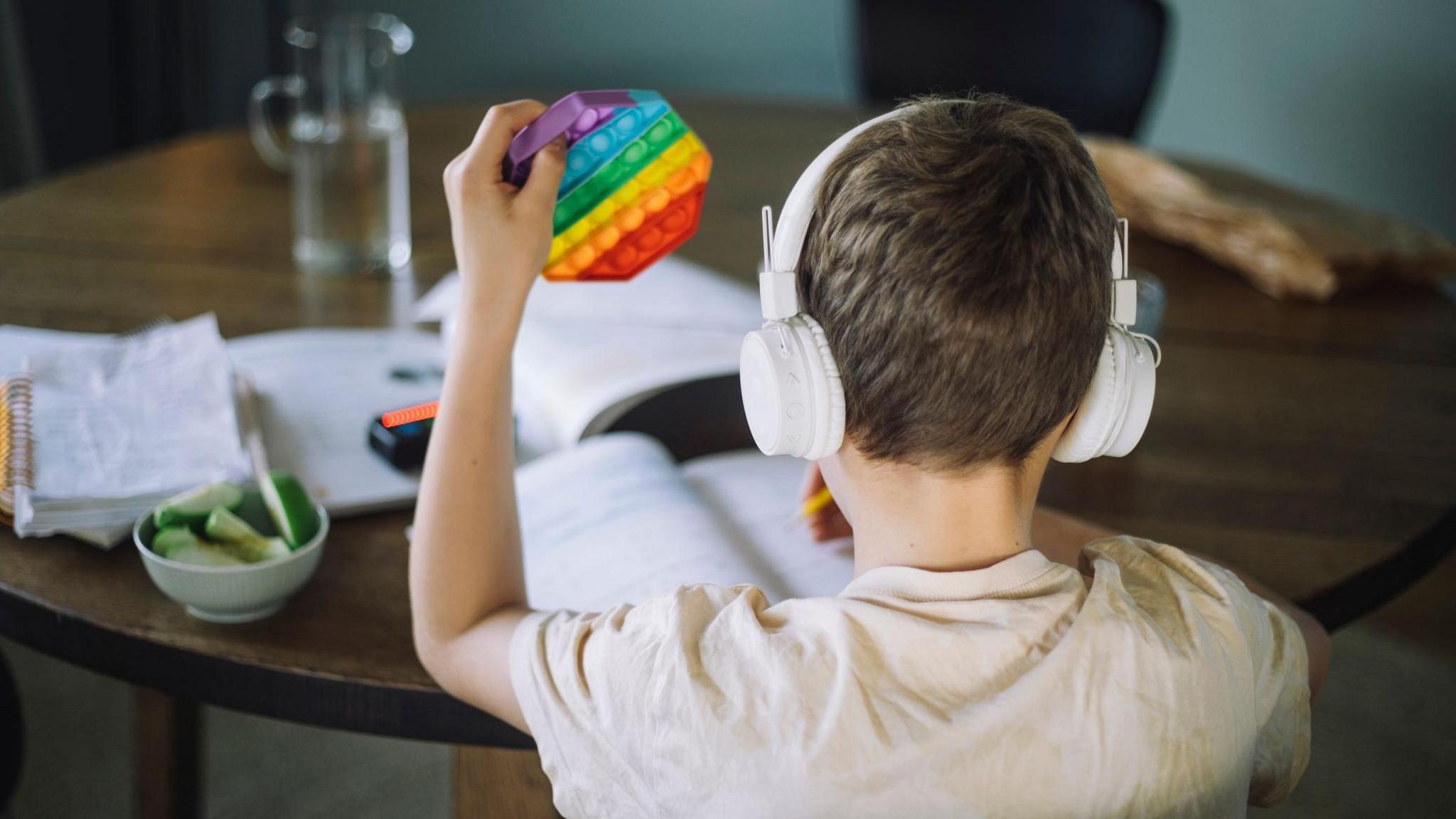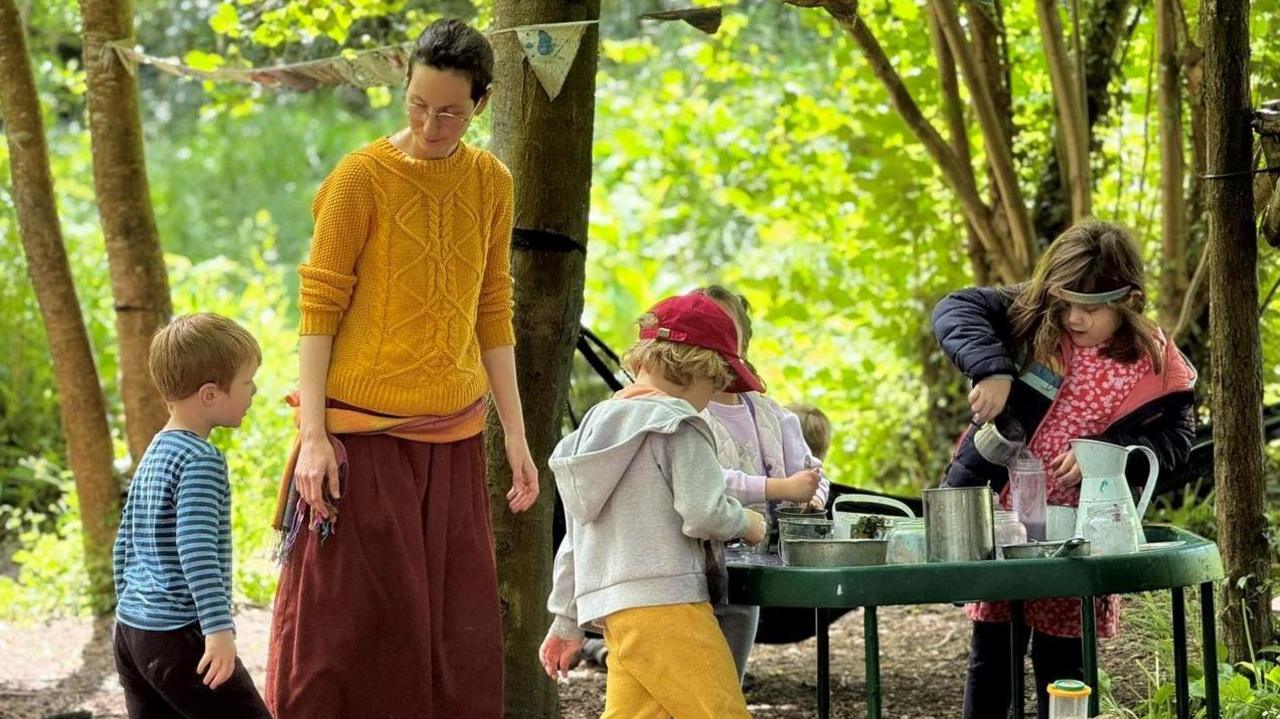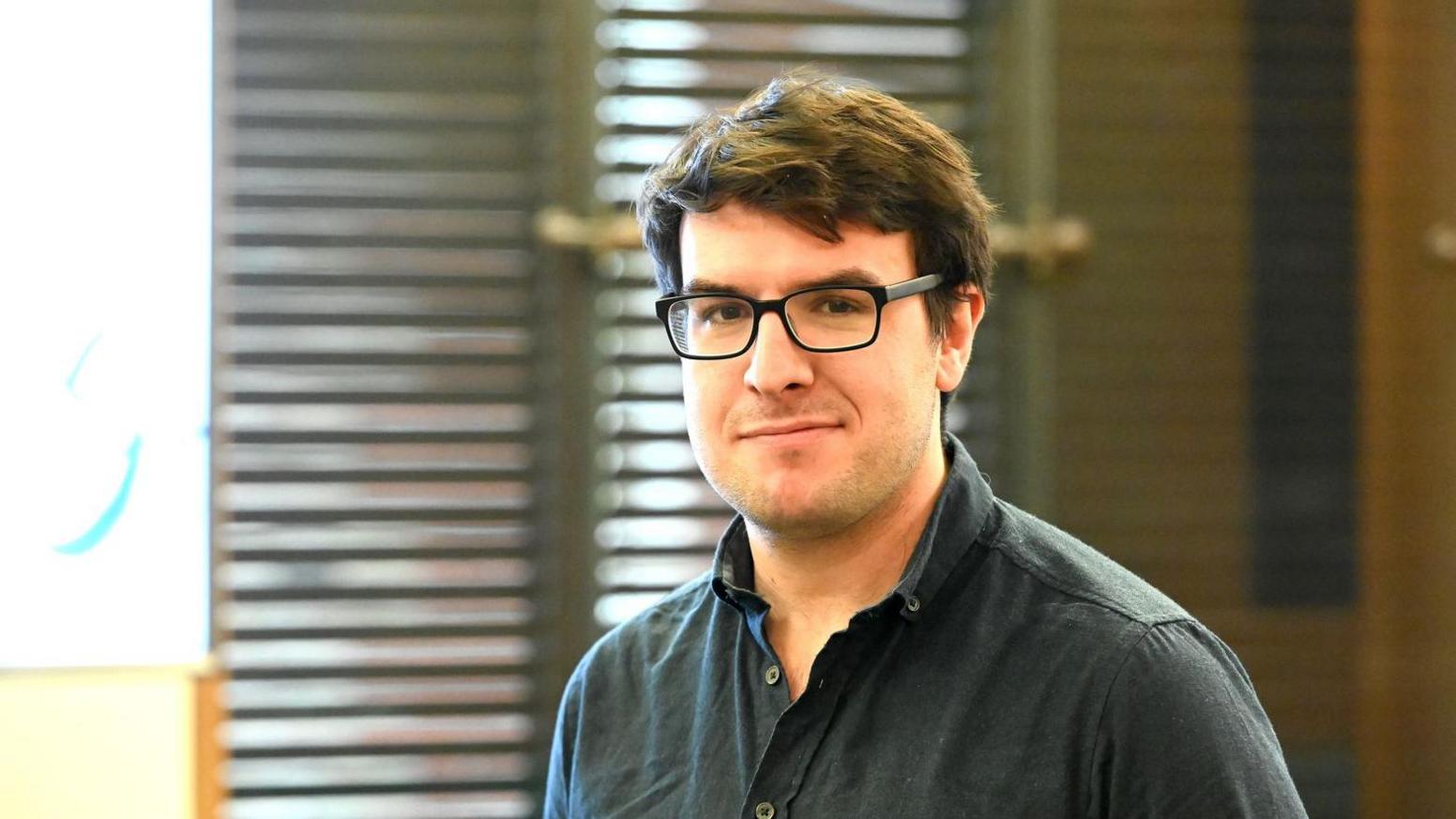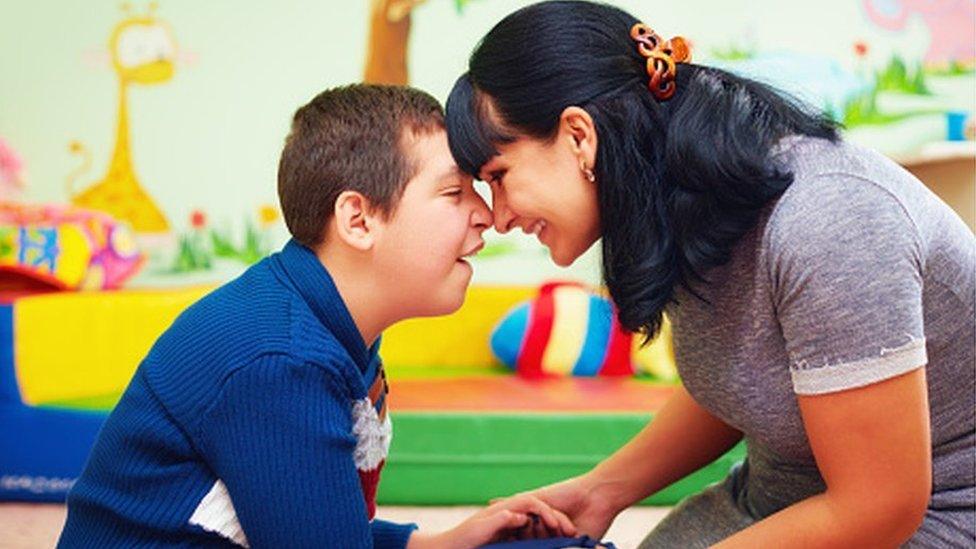'She stopped eating' - Why home education is rising

One parent said her child was "unrecognisable" after starting school
- Published
Crippling anxiety, depression and even chronic vomiting are among the reasons families have felt forced to take their children out of mainstream school. A BBC investigation found home educating in Bristol has surged by 96% in the past five years, with poor child and young people's mental health a major driving force.
Many parents say they made the move after giving up hope of ever getting extra support for their children.
Bristol City Council said it aims to work with parents choosing to home educate “in order to safeguard the educational interests of children and young people”.
The government has pledged to introduce registers for children not in school, and plans to release official figures in December.
Lizzie watched her child’s mental health deteriorate rapidly when she entered Year 1 in 2018.
The little girl developed a vomiting condition called rumination syndrome, which is linked to depression and anxiety.
Lizzie told the BBC: “She was just unrecognisable, she was depressed, she didn’t want to get out of bed.”

Many parents find their children are not coping in school
"(The school) was really crowded, it was really noisy,” Lizzie said.
“Some days she would spend all her time with a bucket just spitting up food. She stopped eating all together for a time."
The family were repeatedly told their daughter did not meet the criteria for an autism assessment or a referral to mental health services, and threatened with a fine if she did not attend school.
They made the move to home education when their daughter reached Year 4 and appeared at the point of a "complete mental breakdown", the parents said.

Katy's child struggled with the upheaval of secondary school
Katy’s child was diagnosed with autism at the age of five but managed well in school until reaching secondary.
“They couldn’t cope with the upheaval - the large class sizes and the constant moving,” Katy said.
“They wouldn’t be able to say if they couldn’t complete a task or didn’t understand.
“It just led to them looking like a failure and them just withdrawing.”
Katy is still waiting to find out if an application for an Education, Health and Care Plan (EHCP), a legal document describing the support a child needs, has been successful a year after submitting it.
Her child would now be in year nine and takes some courses online as an interim measure.
“Local authorities are just in absolute meltdown. They are fire fighting. They’ve got no funds,” Katy said.
SEND provision
In the UK in 2024, 1.6 million young people are deemed as having special educational needs or disability (SEND).
The figure increased by 101,000 in the past year, according to Department for Education (DfE) figures, external.
In Bristol, the figure was 14,588 in the 2023-24 academic year, up from 11,063 in 2019-2020, an increase of 32%.
The council’s SEND budget is about £78m a year. In March this year it received a £53m bailout from central government for its SEND services.
In the last academic year, a freedom of information request revealed the city council received 530 notifications a child would no longer be attending school, compared to 270 in 2019-20 - a rise of 96%.
'I'm exhausted'
Lizzie turned to one of Bristol’s many home education collectives, as an alternative to school.
Such collectives receive no funding from central government or local authority, so the cost is covered by pupils' families.
They often hire qualified teachers, who legally can only work for 18 hours a week, the remaining hours fall on parents.
Lizzie, a marketing communications manager, works three days a week, and make up the rest in the evenings when her husband finishes work.
“I am exhausted with the hours that I work, but obviously I am going to do that because my family is happy in comparison to where we were,” she said.

Home education collectives are run by parents
April, a mother-of-two, co-founded Hawthorns home education collective in Fishponds in 2023.
Hawthorns cannot offer the support a child with a severe SEND diagnosis requires, but children with lower level needs often thrive in its environment, April said.
“We say we are for children who are ‘sensitive and spirited’,” she said.
“We have the freedom to be influenced by lots of (education) models, including forest school - we spend about two hours a day outside and one day a week in woodland.”

Hawthorns is inspired by lots of different education models
But the fact that Hawthorns is entirely funded by parents, means “it is not as inclusive as we would like it to be," April said.
“Parents on a low budget that choose to home educate are really restricted in terms of what they can access to provide education for their children.”
Magdalena Leszczyc, Hawthorns teacher, said: “Some people who had their children in mainstream education, the impact was just not liveable. The children had depression and anxiety and now they are able to relax and to enjoy learning.
“This is a life-changing provision."
‘Real limbo’
Jenny's 15-year-old son's autism was never severe enough to require a specialist setting, but he struggled at secondary school due to its size and the variety of subjects.
All suggestions made by the family to keep him in mainstream education, such as placing him in the same school as his older sibling or allowing him to sit fewer GCSEs, were refused.
Jenny, from Henleaze, decided to withdraw him on the grounds of autism burnout - where the sufferer becomes so overwhelmed their mental health declines significantly.

Jenny met 'resistance all the way' when she asked her son's school to make adjustments for him
He is now doing a combination of online courses and a few hours of one-to-one tuition while he waits to learn the outcome of an EHCP application.
“We are in a real limbo,” Jenny said.
“Things are falling apart around us at the moment - home educating is on the rise because children aren’t ticking the box and the education system isn’t flexible enough to allow tailor-made provision."

Joey Nettleton Burrows of the National Autistic Society says schools need more freedom to make adjustments for children with SEND
About a third of children with an EHCP have an autism diagnosis, according to the DfE.
Joey Nettleton Burrows, policy and public affairs manager at the National Autistic Society, said the rise in the number of children requiring SEND support is mostly down to greater awareness.
“It is a good thing because children should be getting the support they need," he said.
The supply of SEND services has not kept pace with demand, and only 14% of secondary school teachers have had more than half a days autism training, he added.
“We need to empower schools to make small changes, such us creating quiet spaces or allowing children to go out of class now and then and stronger teacher training,” Mr Nettleton Burrows said.
"Some changes can make a huge difference."
The government plans to create a register of all children not in school as part of its Children’s Wellbeing Bill.
A DfE spokesperson said: “Our mission is to break down the barriers to opportunity, so every pupil has the best life chances.
“That includes making sure every child is receiving a suitable education for their age, ability, aptitude, and any special educational needs whether they are in school or at home.”
The added: “(We are) reforming the SEND system so more children receive earlier and better support to thrive in education.”
Get in touch
Tell us which stories we should cover in Bristol
Follow BBC Bristol on Facebook, external, X, external and Instagram, external. Send your story ideas to us on email or via WhatsApp on 0800 313 4630.
- Published24 March 2024

- Published28 March 2024

- Published26 July 2023
